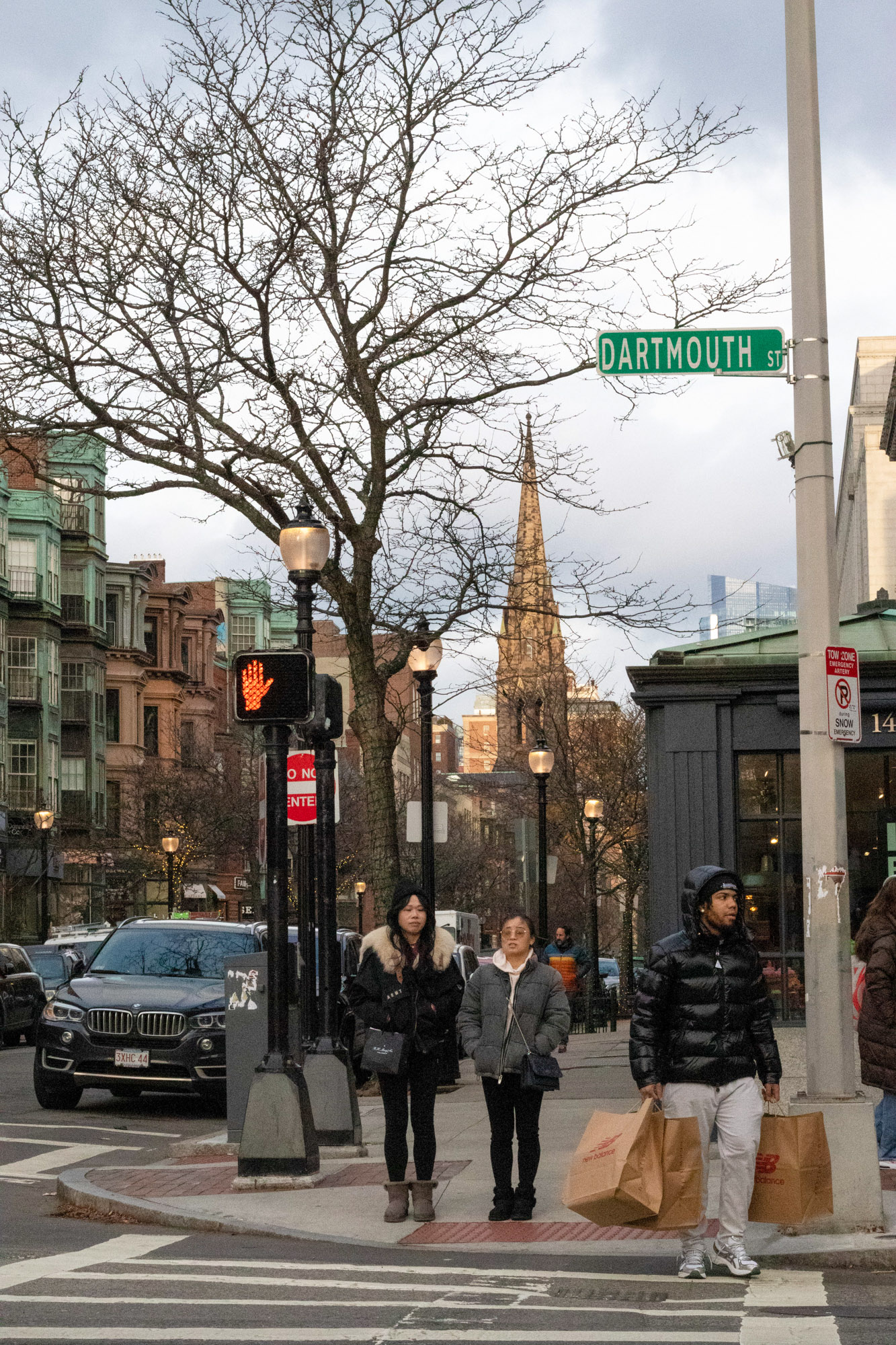A nationwide 24-hour economic blackout on Feb. 28 drew mixed reactions from consumers while impacting local businesses.
The blackout was organized by the People’s Union USA Founder John Schwartz, urging consumers to refrain from spending money with the hope of pressuring corporations and policymakers, according to the organization’s website.
Rise Above Justice Movement, a volunteer-led group supporting those impacted by systemic injustices, promoted the blackout, said Co-Founder and Executive Director Zachary Mallory.

“We’re survivors of sexual and gender based violence. We’ve been targeted by corporations. We’ve been targeted by mainstream media. We’ve been targeted by removal [of] DEI initiatives from corporations,” Mallory said. “So, I thought it was really immediate that we promote and join in solidarity.”
Rise Above Justice Co-Founder Mercedes Molloy said she is hoping the blackout sends a “message to the government.”
“This is … one day to show the government, ultimately, the power lies within,” Molloy said. “Through this lack of consumer spending, we’re hoping to send a message to the government, which is … essentially saying, ‘Our study power and our dollars.’”
Mallory said he is hoping the blackout shows that Americans are “fed up with corporations” and the “top 1% billionaires.”
“Eliminating DEI, they want us to go back into the closet,” Mallory said. “What we’re hoping to do is just send the statement that we’re not tolerating it, and we won’t stay silent.”
However, some consumers were unaware of the economic blackout prior to Friday.
Kavya Veeramony, a Boston resident, said she did not know about the blackout.
“The fact that I didn’t really even hear about it today, I’m not sure if it was really as widespread,” Veeramony said.
Veeramony said she doesn’t think the blackout will have a large impact.
“People might just do it for a day, but it’s just gonna go back to normal the next day,” she said. “So, I don’t think it’s gonna make a huge impact.”
Likewise, Alina Karimova, a senior at Boston University, said the blackout lasting only one day will limit its impact.
“It has to be something that lasts a while for corporations to really feel the hit, which means more planning and more time of actually spreading the word,” Karimova said.
Meghan Kiessling, a staff worker at Lipstick Boutique on Newbury Street, said promoting a nationwide boycott is challenging.
“It’s very hard to encourage a wide population to boycott things that are necessities and that are affordable,” Kiesling said. “It’s easy for people in a higher tax bracket to just stop shopping at a big corporation.”
Kiessling also said the economic blackout was “unproductive” and Lipstick Boutique had “normal” customer traffic.
“I feel like having a singular blackout Friday just encourages people to buy the day before or the day after,” Kiessling said.
While some consumers may not have noticed the impact, local businesses and stores felt it.
“Our stats for other stores in New England have been lower for today,” said Ellis McNeese, a worker at Lush Cosmetics on Newbury Street.
Mallory said that while a 24-hour blackout may not create a lasting change, it’s a first step towards broader action.
“This is a definite start. We should be doing this boycott 24/7, 365,” Mallory said. “But this is a damn good start.”























































































































Thomas Stewart • Mar 3, 2025 at 10:22 pm
The Guy Behind the ‘Economic Blackout’ Was On the Sex-Offender’s Registry